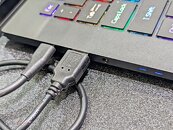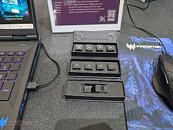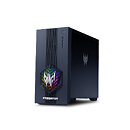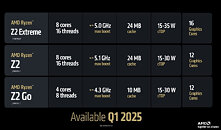
MSI Reveals Cubi NUC AI+ 2MG
MSI, a global leader in high-performance computing, is committed to advancing innovation in AI, design, and productivity. MSI proudly introduces the Cubi NUC AI+ 2MG, a groundbreaking mini PC that harnesses the power of Copilot+ PC in an exceptionally compact 0.826-liter form factor. This device is engineered to deliver intelligent computing and seamless AI experiences without sacrificing performance or versatility.
The Cubi NUC AI+ 2MG is equipped with a powerful Neural Processing Unit (NPU) that enables advanced on-device AI capabilities. Users can benefit from features such as Live Captions with Live Translation, Cocreator, Click-to-Do, Recall, and more. These AI tools empower users to work more efficiently, create at a faster pace, and interact with their PCs in a more natural way, all while ensuring smooth multitasking and responsiveness in daily operations.
The Cubi NUC AI+ 2MG is equipped with a powerful Neural Processing Unit (NPU) that enables advanced on-device AI capabilities. Users can benefit from features such as Live Captions with Live Translation, Cocreator, Click-to-Do, Recall, and more. These AI tools empower users to work more efficiently, create at a faster pace, and interact with their PCs in a more natural way, all while ensuring smooth multitasking and responsiveness in daily operations.




























































































